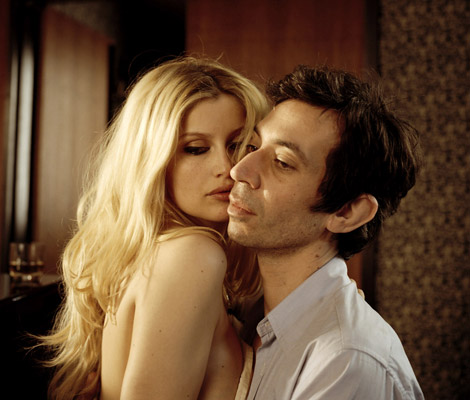 |
| Brad Pitt, Moneyball, Columbia Pictures, 2011. |
The too familiar baseball flick is given a refreshingly pragmatic makeover in Bennett Miller's Moneyball. A cleverly scripted underdog tale pitting old vs. new, Miller's terse dynamism is clear cut in a way few sports films now could hope to be.
The corporatism of sports and the financial mechanics of baseball take the spotlight in a well done if unspectacular true story. Mathematics play a huge role in the re-imagining of the sub-genre, as the dichotomy of the dollar and the humane aspects of good sportsmanship battle for the bulge. What we're left with is a subtle, old fashioned story of family, loss and regret. Miller's pseudo-realist approach recalls the strengths of his first two features, the underrated The Cruise and the excellent Capote. Wheeling and dealing men behind the curtain resist the onslaught of technology, represented by Billy Beane, a former player turned manager played by a steely, focused Brad Pitt in attack mode.
Intercutting archival game footage, the director works with ace writers Steven Zaillian and Aaron Sorkin, d.p. Wally Pfister and editor Christopher Tellefsen play off one another in a mirror display of fierce teamwork. Pfister's proactive illumination of the ordinary perfectly complements Mychael Danna's contemplative score and the picture's overall grasp of the medium in everything.
What we have hereis an incisive, lived in cast. Alot of the actors are so natural in their parts that they are easy to forget. Pitt's performance ranks as one of his best. Jonah Hill shines in an image shaking turn. Philip Seymour Hoffman reminds us what a superb character actor he is with his understated take on the tired coach character. In the end, Miller's unconventional approach to the athletic climax sums up the overarching tone of the movie; predictable but well done.












